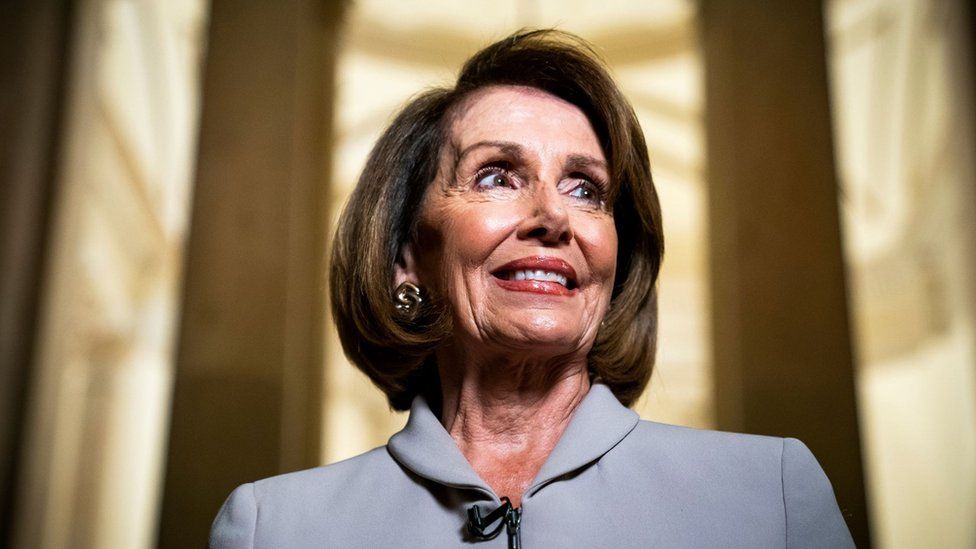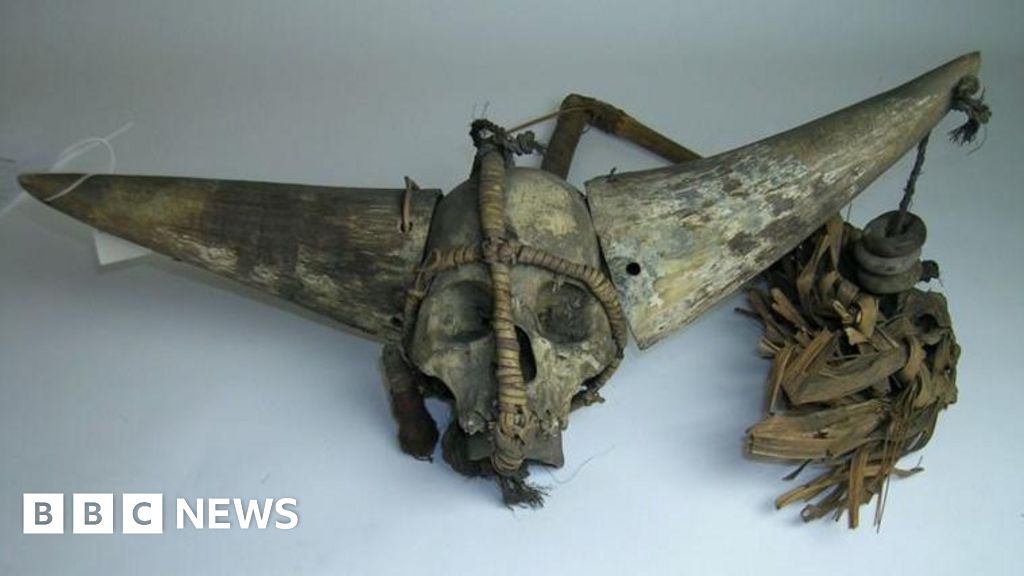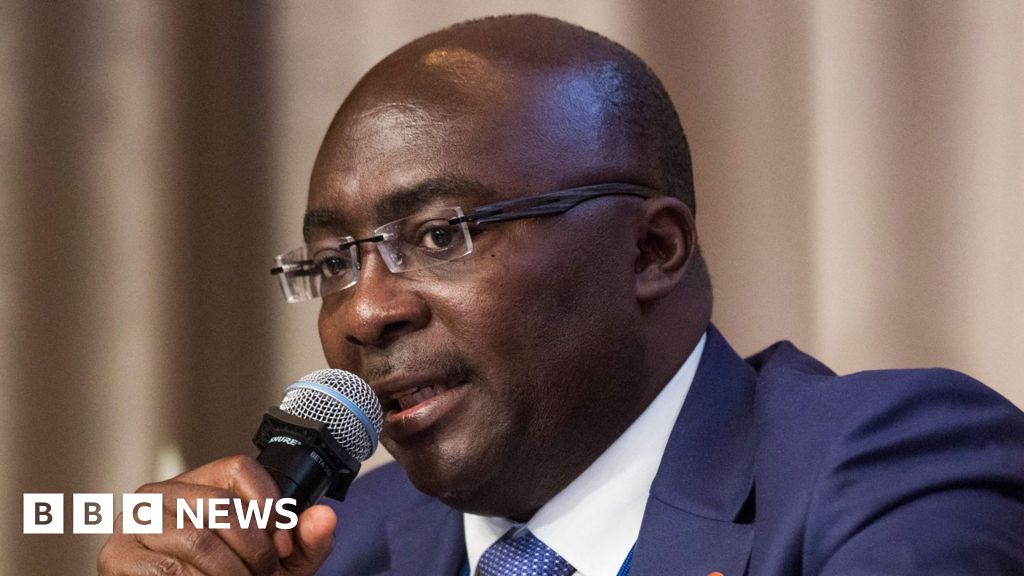ARTICLE AD BOX
By Melissa Zhu
BBC News
 Image source, EPA
Image source, EPA
US House of Representatives Speaker Nancy Pelosi is second in line for the presidency
US House of Representatives Speaker Nancy Pelosi - whose rumoured visit to Taiwan has infuriated China and given the White House a diplomatic headache - has a long history of criticising the Chinese government.
Most famously in 1991, two years after large-scale protests in Beijing were crushed by the Chinese government, she visited Tiananmen Square and displayed a banner honouring the deceased demonstrators.
For its part, the Chinese government has made no secret of its disdain for Ms Pelosi, once labelling her "full of lies and disinformation".
China sees self-ruled Taiwan as a breakaway province, and has not ruled out using force to unify it. It deploys significant pressure to dissuade other countries from recognising Taiwan's independence.
It has warned of serious consequences if Ms Pelosi does visit Taiwan.
She is second in line for the presidency after Vice-President Kamala Harris, and would be the most senior US politician to travel to the island since her predecessor Newt Gingrich in 1997.
Ms Pelosi is reportedly planning to visit Singapore, Indonesia and Japan in early August, but it is still unclear whether she will stop in Taiwan.
With US-China tensions continuing to run high, even White House officials have reportedly tried to dissuade her from doing so. US President Joe Biden recently told reporters "the military thinks it's not a good idea".
But it is not the first time Ms Pelosi has angered Chinese authorities.
1991 Tiananmen Square visit
Two years after protestors were crushed by Communist Party forces in Beijing's Tiananmen Square, the then-California representative visited the capital city.
Slipping away from her official escorts along with two other members of Congress, she went to the city square without the permission of her Chinese hosts.
There, they unfurled a small, black banner. "To those who died for democracy in China," the hand-painted banner read.
28 years ago, we traveled to Tiananmen Square to honor the courage & sacrifice of the students, workers & ordinary citizens who stood for the dignity & human rights that all people deserve. To this day, we remain committed to sharing their story with the world. #Tiananmen30 pic.twitter.com/7UqiJVRS3t
— Nancy Pelosi (@SpeakerPelosi) June 4, 2019The BBC is not responsible for the content of external sites.View original tweet on Twitter
The police closed in quickly, roughing up reporters who were covering the event and chasing the lawmakers out of the square.
China's Foreign Ministry later denounced the incident as a "premeditated farce".
Some have criticised Ms Pelosi's actions during the 1991 visit. Former CNN Beijing bureau chief Mike Chinoy wrote in an op-ed for Foreign Policy that she was the reason he got arrested at the scene.
Mr Chinoy said he was not aware of what Ms Pelosi planned to do at the square, and was detained for several hours as the police were unable to target a visiting foreign dignitary.
"It was my first experience with Pelosi's penchant for high-profile gestures designed to poke China's communist rulers in the eye - regardless of the consequences," he wrote.
There has been a lot of interesting discussion triggered by my Foreign Policy piece about Nancy Pelosi and Taiwan. Here is a photo of me and CNN cameraman Mitch Farkas being arrested after Pelosi’s 1991 visit to Tiananmen Square pic.twitter.com/uyGx1U3mQg
— Mike Chinoy (@mikechinoy) July 29, 2022The BBC is not responsible for the content of external sites.View original tweet on Twitter
Ms Pelosi, who also helped lead a resolution condemning China's actions in 1989, has continued to speak out about the "massacre" of demonstrators over the years.
Most recently, she issued a statement to mark the 33rd anniversary of the protests this year, calling the demonstrations "one of the greatest acts of political courage" and slamming the Communist Party's "oppressive regime".
Letters to Hu
At a meeting with then-Chinese Vice-President Hu Jintao in 2002, Ms Pelosi tried to pass him four letters expressing concern over the detention and imprisonment of activists in China and Tibet, and calling for their release.
Mr Hu refused to accept the letters.
Seven years later, Ms Pelosi reportedly hand-delivered another letter to Mr Hu - by then President of China - calling for the release of political prisoners including prominent dissident Liu Xiaobo.
Liu was named the winner of the 2010 Nobel Peace Prize but was not allowed to travel to Norway to accept the award. He died of cancer in 2017 while still under Chinese custody.
Olympic manoeuvres
Ms Pelosi has opposed China's bids to host the Olympics Games as far back as 1993 on the basis of its alleged human rights abuses.
She was one of the lawmakers that unsuccessfully urged then-US President George W Bush to boycott China's Summer Olympics opening ceremony in 2008.
This year, the Speaker of the House again led calls for a "diplomatic boycott" of Beijing's 2022 Winter Olympics over the treatment of Uyghur Muslims in China.
"For heads of state to go to China in light of a genocide that is ongoing - while you're sitting there in your seat - really begs the question, what moral authority do you have to speak again about human rights any place in the world?" she said.
In response, a spokesman for the Chinese embassy in Washington said US politicians were in no position to make "wanton groundless criticism" against China.
Over the years, Ms Pelosi has also pushed for China's trade status to be linked to its human rights record, and to attach conditions to China's entry to the World Trade Organization.
The policy has been controversial: Mr Bush vetoed legislation related to this several times, while former President Bill Clinton initially supported but later abandoned it, saying broader American strategic interests justified the reversal.

 2 years ago
28
2 years ago
28








 English (US)
English (US)